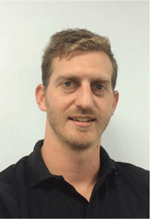Lined tubing performance in CSG wells operated in Australia
Jonathan Martin A B and Robert Carmichael AA COHO Resources, Unit 26, 43 Lang Parade, Milton, Qld 4064, Australia.
B Corresponding author. Email: jon@coho-resources.com
The APPEA Journal 59(2) 796-798 https://doi.org/10.1071/AJ18039
Accepted: 1 April 2019 Published: 17 June 2019
Abstract
One of the major challenges with progressive cavity pump (PCP) applications in Australia is the production of highly concentrated solids. Large volumes of solids entering the production string cause both high torque issues and holes in tubing, resulting in lost production and the need for intervention with a flush-by unit or service rig. On account of these issues, it is reported that up to 40% of PCPs in the Australian coal seam gas (CSG) fields can be down at any given time. Coho Resources has introduced lined tubing as an engineered solution. The proprietary lining the tubing has a lower friction factor compared with conventional steel tubing, resulting in lower operational torque and reduced operating costs. The added lubricity from the lower friction coefficient in lined tubing allows solids to flow more freely to surface where they are captured and discarded from the system. Lined tubing allows producing companies to realise bottom-line operational savings in several ways. The largest of course is minimal downtime and reduced well service costs due to the elimination of our previous tubing related problems. With reduced work over costs, savings become visible very quickly. Rig costs, bottom hole pump, tubing and sucker rod replacement costs are all reduced.
Application of lined tubing in CSG wells in Australia results in:
• 15–25% less torque on the drive system,
• An 70% increase in run times between workovers (lined tubing versus un-lined tubing), and
• Compatibility with existing field equipment and handling methods.
Keywords: production, progressive cavity pump (PCP), solids production, tubing wear, workovers

Jonathan Martin is the Chief Executive Officer (CEO) and Managing Director (MD) at COHO Resources and Steelhead Energy. As the CEO/MD, Jon has responsibilities as a director, decision maker, leader, manager and executer. Jon also leads business development, international growth and drives the company’s corporate projects and corporate development initiatives. Jon presides over the organisation’s day-to-day operations. Jon has over 15 years of extensive experience in the oil and natural gas industry. Before founding Steelhead, Jon worked in various technical and leadership roles for Armour Energy, Santos Ltd, Wrangler West Energy and Burlington Resources. Jon has excelled as a leader in the field of onshore drilling, completions and production optimisation and brings a wealth of experience to Steelhead. Jon holds a Petroleum Engineering Certified Degree from Southern Alberta Institute of Technology in Calgary Alberta, as well as various certificates within the petroleum engineering disciplines. Jon is a member of APPEA. |

Robert Carmichael is Artificial Lift Manager at COHO Resources. As Artificial Lift Manager, Rob is responsible for overall management of COHO Resources Artificial Lift products and systems in Australia, New Zealand and Papua New Guinea. This role encompasses management and sales of products (ESP, PCPs, sucker rods, drive heads beam pump and rod pumps), field services and finance. The role also includes development and introduction of new technology into these markets. Rob has over eight years of experience in the oil and natural gas industry in Australia. Prior to starting as Artificial Lift Manager at COHO Resources, Rob worked at Schlumberger and KUDU Industries in technical sales and support roles. Rob is a member of APPEA. |


